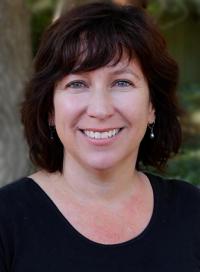Psychology Chair Named to Federal Autism Panel

Susan Rivera, a professor and chair of psychology at UC Davis, has been named to a committee advising the U.S. Department of Health and Human Services on autism research, services and policy.
Secretary of Health and Human Services Xavier Becerra appointed Rivera and 21 others this month to the Interagency Autism Coordinating Committee. Her three-year term starts immediately.
“I am honored to have the opportunity to serve on this committee,” said Rivera, an expert on neurocognitive development who is also a faculty member of the UC Davis MIND Institute, which studies neurodevelopmental disabilities, and the UC Davis Center for Mind and Brain, which focuses on cognitive neuroscience. She was nominated by Center for Mind and Brain Director George “Ron” Mangun, with support from MIND Institute Director Leonard Abbeduto.
“Being involved in formulating recommendations for autism research, services and policy holds deep meaning for me. It provides a way of using the knowledge I’ve gained over my many years of conducting autism research and participating in advocacy efforts to help shape these agendas.” — Susan Rivera, professor and chair of psychology
Rivera has done scientific research on autism for two decades. Her lab uses brain imaging and eye tracking techniques to investigate how underlying brain activity and behavior support the development of skills like attention, visual perception, face processing, sensory processing and emotion regulation. These skills are necessary for adaptive cognitive and social-emotional well-being.
A focus on neurodiversity
The new committee members include researchers like Rivera, autism self-advocates, parents and family members of those with autism, clinicians and representatives of service and advocacy groups, making it the largest and most diverse IACC yet.
Rivera is a champion of neurodiversity — focusing on the strengths as well as challenges of autism and pushing back against limited notions of “normal” — and advocacy to the public and academic communities. She applauds the committee’s inclusion of more representatives from the autism community.
“I’m very excited to see the significant number of self-advocates on the panel. Given the combination of individuals who can speak to the lived experiences of autism and researchers and clinicians that can speak to science and new discoveries in the field, I think the committee is well-poised to make significant progress in formulating recommendations for the Health and Human Services secretary,” she said.
Rivera noted that she’d like to see a shift toward more involvement from autism advocates in shaping research funding priorities.
In addition to the 20 new and two returning members, the IACC also includes 23 federal officials who represent federal agencies and departments that serve the autism community in areas such as biomedical research, education and health care.
Rivera is not the first UC Davis MIND Institute faculty member to serve on the IACC. David Amaral, Distinguished Professor in the Department of Psychiatry and Behavioral Sciences, and Marjorie Solomon, professor of clinical psychiatry in the Department of Psychiatry and Behavioral Sciences and associate director of the MIND Institute, were on the committee previously.
The appointment involves a significant time commitment and broad duties, such as monitoring autism research, services and support activities, developing a summary of significant advances in these areas and making recommendations, as well as developing a strategic plan for the conduct of and support for autism research. Major projects include the IACC Strategic Plan for Autism Spectrum Disorder (ASD) and the Summary of Advances in ASD Research.
For Rivera, it’s well worth the effort. “I hope the work I do on the committee will both help deepen the public’s understanding of autism, and positively impact the lives of individuals with autism,” she said.
The new IACC will hold its first public meeting July 21-22.
— Adapted from an article by Marianne Russ Sharp, news editor and senior public information officer for the UC Davis MIND Institute.
